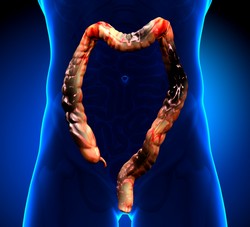Genetic profiling of colorectal cancer
The Wnt signalling pathway is a developmentally important pathway also known for its role in the specification and maintenance of normal stem and progenitor cells of many tissues. Given the prevalence of Wnt mutations in CRC, there is an urgent need to characterise the similarities and differences in the instructions dictated by beta-catenin and Tcf to normal intestinal cells versus CRC cells. For this purpose, researchers on the EU-funded CRC PROGRAMME (Dissecting the roles of the beta-catenin and Tcf genetic programmes during colorectal cancer progression) initiative performed gene expression profiling of normal and cancerous intestinal stem cells (ISCs). A major achievement, scientists developed a novel technology that allowed the purification and expansion of normal and cancerous human ISCs in vitro, a task previously not possible. They discovered that CRCs shared a common hierarchy and organisation profile with the normal intestinal epithelium. In particular, gene expression analysis enabled the identification of a tumour cell subpopulation that resembled normal ISCs. These ISC-like CRC cells exhibited long-term self-renewal capacity and robust tumour initiation capacity when transplanted into immunodeficient hosts. From a clinical perspective, high expression levels of the ISC signature genes in primary tumours indicates a high likelihood of disease relapse upon intended curative treatment. This clearly showed that ISC-like tumour cells could be the instigators of disease relapse and metastasis. Overall, the CRC PROGRAMME findings demonstrate the connection between adult ISCs and CRC cells. The generated information has important consequences for the clinical management of CRC patients as it could help identify patients at high risk of disease recurrence. Finally, the in vitro expansion of normal colon stem cells paves the way for future studies into the role of these cells in disease onset.







